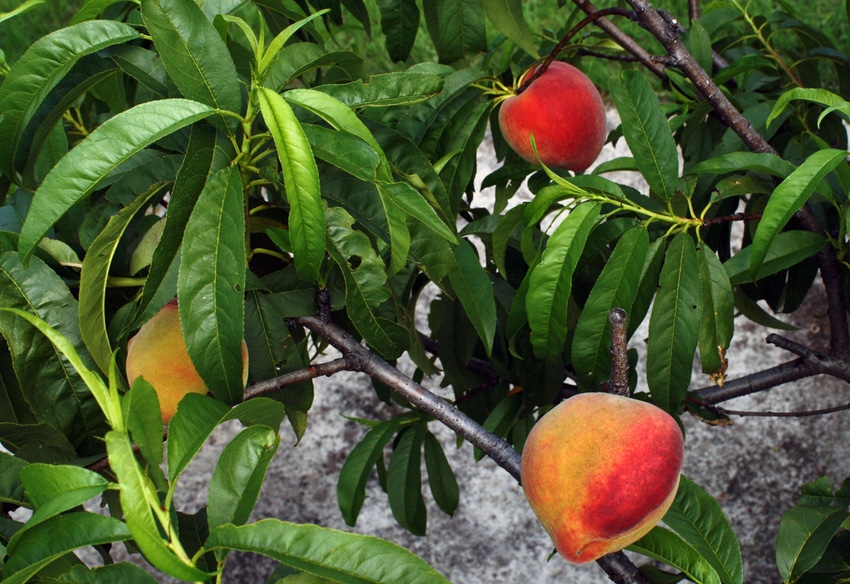January 20, 2016

Armillaria root rot, commonly known as “oak root rot,” is a soil-borne disease that is estimated to cause more than $4 million in annual peach losses (in each commercial peach-producing state) and millions more dollars in control costs, including loss of available orchard land.
Clemson University has received a $150,000 grant from Wells Fargo to support research aimed at preventing Armillaria root rot, which can cause the destruction of peach crops throughout the Southeast.
“This agriculture grant is an investment in our local community and the agriculture industry, which will provide much-needed funding aimed at researching a disease that has proven to have an adverse effect on the peach industry,” said Neal Crapo, head of Wells Fargo National Food and Agribusiness in the East.
“We’re proud to collaborate with Clemson University to use our financial resources and the expertise of our team members as the university establishes a research project to better understand Amarillia root disease, its causes and prevention to protect the industry,” Crapo said.
Although scientists have been studying this disease for nearly 100 years, progress is slow in the development of effective long-term management and control strategies. While biological and chemical controls are virtually ineffective and contribute a heavy chemical load to the environment, Clemson plant pathologist Guido Schnabel has developed a technique of planting trees in shallow engineered berms with the top parts of roots exposed above ground to extend the productive life of trees. The fungus can’t live above the soil line because it doesn’t tolerate extreme temperatures.
Schnabel’s planting technique is on display at Clemson’s Musser Fruit Research Center, a 240-acre research facility in Seneca where a team of Clemson scientists is discovering ways to improve fruit tree yields and reduce costs.
Other advances include the release of plum/peach hybrid rootstocks with a natural level of tolerance to Armillaria root rot, but these rootstocks are limited commercially due to the lack of vigor, dwarf tree size and small fruit size. At present, the only practical control practice is to avoid planting on land previously infested with Armillaria.
“The funding provided by Wells Fargo will allow us to apply advanced genetic and computational techniques to build a foundation for solving a critical problem of peach orchard sustainability in the southeastern U.S.,” said Stephen Kresovich, Coker Chair of Genetics and director of Clemson’s Institute of Translational Genomics. “This work, if successful, will lead to a more manageable production system with a reduced need for chemical control measures.”
Like what you’re reading? Subscribe to Southeast Farm Press Daily and get the latest information right to your inbox! It’s free!
The research is part of the much larger agriculture research project known as RosBREED, a U.S. Department of Agriculture-Specialty Crop Research Initiative project focused on developing and applying modern DNA tests and related breeding methods to deliver new cultivars — cultivated varieties — of rosaceous crops in 22 U.S. breeding programs.
Wells Fargo learned about this project during the grand opening event for the new packing facility at Titan Farms in Ridge Spring, which was financed by the bank’s National Food and Agribusiness Division. Upon meeting Kresovich, Crapo engaged Wells Fargo’s Environmental Affairs team, which administers the Wells Fargo Environmental Grant Program. The team is interested in helping the industry find more environmentally sound and sustainable treatments to avoid root rot.
“I am extremely excited about possibilities this $150,000 grant will offer the peach industry,” said Chalmers Carr, owner of Titan Farms. “The No. 1 issue facing peach growers in the Southeast is the loss of trees and productive land to Armillaria. This grant kick starts the efforts of researchers as they endeavor to understand the intricacies of this disease. I also feel this will serve as seed money for future grants that may be obtained to assist our researchers in their quest to find a cure for this disease that is economically devastating to our industry.”
You May Also Like




